As the 50th anniversary of the book Small is Beautiful, 2023 is our opportunity to advance solutions to today’s social, economic, and environmental challenges that build on Schumacher’s original vision.
To meet this calling, the Schumacher Center is convening a monthly series featuring New Economic thinkers, builders and activists from a range of fields. “Schumacher Conversations: Envisioning the Next 50 Years” brings together change-makers whose work today is actively shaping a ‘small is beautiful’ future, organized around 12 key themes and fields of activism.
January’s theme is: Reimagining Economics for a Thriving World. This event was held virtually on Thursday the 19th at 2PM (EST).
Our panelists for this Conversation were:
- John Fullerton, founder and president of Capital Institute, author of “Finance for A Regenerative World” (2019).
-
Head of Regenerative Economics at Schumacher College (U.K.), artist and activist.
-
Stewart Wallis, Chair of WEAll, the Wellbeing Economy Alliance, former E. D. of New Economics Foundation (U.K.)
Each speaker began by reflecting on the impact Small Is Beautiful has had on their economic thinking and activism, opening up a broader conversion on the topic, including responses to audience questions. The discussion was hosted by Matt Stinchcomb, President of the Schumacher Center Board of Directors and Co-founder of Partners for Climate Action Hudson Valley.
“Since there is now increasing evidence of environmental deterioration, particularly in living nature, the entire outlook and methodology of economics is being called into question…
Economics…is not an exact science; it is in fact, or ought to be, something much greater: a branch of wisdom.”
— E.F. Schumacher, Small is Beautiful (1973)
When it appeared in the 1970s, Small is Beautiful inspired many with its call for a new economics wherein people and the planet truly matter. Critical of the the growth-above-all tendency dominant within global economics, Schumacher instead asserted that human needs could be well provided for without overexploiting natural resources or compelling people into degrading work. Against the orthodox presumptions of scarcity and narrow self-interest, Small is Beautiful advanced a case for human as well as planetary thriving.
Today, there is a growing recognition that the prevailing economic system is holding back collective agendas for a habitable planet and a fairer distribution of wealth. January’s panelists are those at the forefront of a movement that is reimagining economics from the bottom up: creating more holistic frameworks and shaping truly sustainable development practices.
Allied Organizations
The power of ordinary people… lies in placing their sympathy
and support with minority groups which have already started.
— E.F. Schumacher, Small is Beautiful
The intent of our monthly “Schumacher Conversations” series is to inspire audiences of various backgrounds and interests to “start where you are,” to join in ushering forward a more just and regenerative economy. Alongside each monthly conversation, we’ll be shining light on aligned organizations and initiatives that are championing social and economic transformation in their respective fields. In curating these groups, we intend to provide inspired listeners with conduits to action, connecting individuals looking to support or join in with those already doing the work.
Those recognized under January’s theme, “Reimagining Economics for a Thriving World,” are busy charting new paths towards an economics where people and planet truly matter. Analyzing global systems and power relations holistically, they maintain and develop key intellectual resources while providing guidance and coordination in place-based action.
- Capital Institute
- Center for Economic Democracy
- Center for Economic Policy and Research
- Center for Popular Economics
- Club of Rome
- Cooperative Economics Alliance of New York City
- Democracy Collaborative
- Doughnut Economics Action Lab
- Movement Generation
- New Economics Foundation
- New Economy Coalition
- New Economy Project
- Post Carbon Institute
- Post Growth Institute
- Schumacher College
- Upstream
- Well-Being Economy Alliance
![]()
Capital Institute is a non-partisan, collaborative non-profit founded in 2009 by John Fullerton. Through a network of entrepreneurial business and investment practitioners and trans-disciplinary academics, the Institute explores and effects economic transition to a more just, resilient, and regenerative way of living on this earth through the transformation of economic and financial systems.
The Capital Institute encourages a transformation of the economic system in order to achieve social and ecological regeneration. The group identifies an urgent need for regenerative models aligned with the principles of natural systems, based on a scientific understanding of how the world works and in keeping with the compassion embodied in global wisdom traditions.
In addition to thought leadership and speaking engagements, Capital Institute also offers courses, such as Introduction to Regenerative Economics, through its website.
The Center for Economic Democracy (CED), based in a Boston, Massachusetts, advances visions and practices for a just and sustainable world after capitalism. Their strategies include: educating and inspiring people who seek a world beyond capitalism, launching and stewarding campaigns and collaboratives to build democratic economies, and redirecting capital to heal communities and our relationship to the living earth.
CED defines economic democracy as people and communities owning and deciding together how to manage their collective needs, from housing and food to energy and economic development. One way CED pursues economic democracy is by working in coalition with worker owners, grassroots organizations and the broader cooperative support ecosystem to advance employee ownership in the City of Boston and to build alignment and power across Massachusetts.
The Center for Economic Democracy recently released a four-part podcast called “Economics for Emancipation.” The series features conversations between CED Fellows and board members, providing listeners with an intimate look into all that goes into realizing economic democracy.
The Center for Popular Economics (CPE) is an Amherst, MA-based nonprofit collective of political economists dedicated to building a just, sustainable, and viable economy. CPE’s programs and publications are created with the intent of demystifying the economy and putting useful economic tools in the hands of people fighting for social and economic justice.
CPE works with interested organizations to design workshops that are customized to support their organizing and advocacy efforts. CPE also hosts annual week-long Summer Institutes for activists, community organizers, educators, and progressive economists. For example, CPE’s 2020 Summer Institute, Economics for Emancipation, delved into Marxist political economy, history and philosophy, from a perspective rooted in ecology and the struggles by Black, indigenous, people of color, and women for liberation from patriarchy, imperialism, and racism.
CPE’s online resources are accessible yet rich in information. They range from books and zines to articles and guides, all of which can be accessed easily from their website.

The Center for Economic Policy and Research (CEPR), established in 1999, conducts both professional research and public education to promote democratic debate on what they see as the most important economic and social issues that affect people’s lives.
CEPR believes that in order for citizens to effectively exercise their voices in a democracy, they should be informed about the problems and choices that they face. They are committed to presenting issues in an accurate and understandable manner, so that the public is better prepared to choose among the various policy options.
CEPR’s work covers issues both in the United States and beyond, ranging from the International Monetary Fund to health and social programs in the U.S.. On their website you can search through the hundreds of publications, including reports, briefings/testimonies, articles, and commentary.

The Club of Rome is a platform of diverse thought leaders who identify holistic solutions to complex global issues and promote policy initiatives and action to enable humanity to emerge from multiple planetary emergencies.
The organization has prioritized five key areas of impact: Emerging New Civilisations; Planetary Emergency; Reframing Economics; Rethinking Finance; and Youth Leadership and Intergenerational Dialogues.
The Club of Rome was created to address the multiple crises facing humanity and the planet. Drawing on the unique, collective know-how of our 100 members – notable scientists, economists, business leaders and former politicians – we seek to define comprehensive solutions to the complex, interconnected challenges of our world.
Decades of exponential consumption and population growth have come to imperil the earth’s climate and life-supporting systems, while reinforcing social and economic inequalities and impoverishing billions globally.

The Cooperative Economics Alliance of New York City (CEANYC) is focused on building a solidarity economy movement in New York City by connecting, supporting, and promoting the people, enterprises, organizations, and movements that are grounded in democracy, cooperation, mutualism, ecological sustainability, and justice. This democratically managed network is composed of over 120 member organizations, including worker, financial and consumer co-ops, community land trusts, gardens, and mutual housing and low-income housing co-ops.
CEANYC recognizes that building a new economy must start from the ground up and prioritize those who have been marginalized by the traditional economy, which is why they offer a variety of workshops and provide technical assistance to low-income and moderate-income people in New York City’s cooperative solidarity economy. Meals, English/Spanish interpretation, and childcare are provided at all of their sliding scale events unless otherwise noted. CEANYC also provides financial assistance to NYC solidarity economy groups through their Solidarity Economy Giving Project.
If you are interested in learning more about the cooperative and solidarity economy, CEANYC has a free resource library on their website with reports, videos, podcasts, articles, books, films and how-to guides.
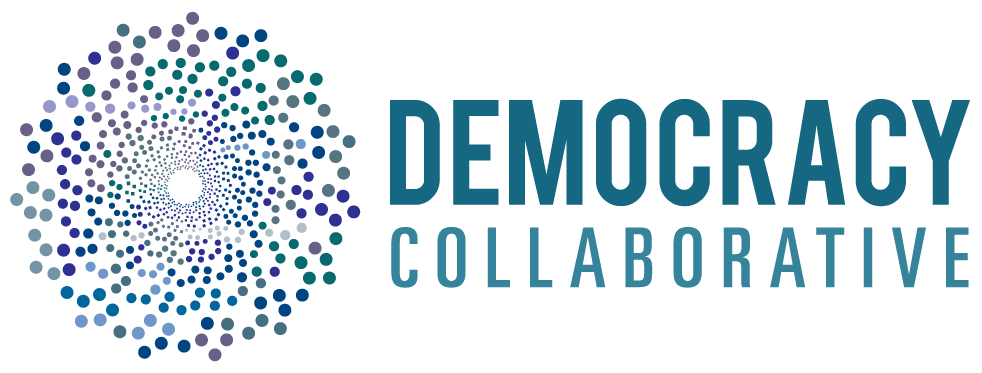
Democracy Collaborative is a research and change-agent organization building a people-powered vision for a new, democratic economy run on shared prosperity and inclusion rather than exploitation. The organization develops and advances bold policy frameworks, such as Community Wealth Building, to aid policy-makers, academics, researchers, and legislators in the U.S. and around the world working to realize a more just and equitable system for all.
Central to the organization’s vision for a democratic economy is Community Wealth Building (CWB), a political-economic development model to transform local economies based on communities having direct ownership and control of their assets. Also referred to as “the Cleveland model” or “the Preston model,” it challenges prevailing approaches to local economic development to address wealth inequality and concentrated private ownership at their core. Community Wealth Building initiatives are currently underway in Chicago, Scotland, Northern Ireland, and other communities around the globe.
Democracy Collaborative’s publication page hosts a wealth of resources on cutting-edge strategies and case studies in transformative area economic development.
Doughnut Economics Action Lab (DEAL) is turning Doughnut Economics from a radical idea into transformative action. Created by economist Kate Raworth in 2012, the Doughnut is at the heart of Doughnut Economics, which aims to create economies that are regenerative and distributive by design, so that they meet the needs of all people within the means of the living planet.
DEAL collaborates with changemakers worldwide—in communities, education, cities and places, business and government and more—who are turning the ideas of Doughnut Economics into transformative action and aiming to bring about systemic change. Working across three levels of transformational change, DEAL is reframing economic narratives, influencing strategic policy, and co-creating niche innovation with the DEAL Community.
The DEAL Community, which is made up of roughly 5,000 members, includes educators, policy makers, community members, business people, artists, academics, designers, facilitators, and economists. Anyone from anywhere in the world can join and have access to the myriad of tools and ideas that DEAL offers via their open-source commons.

Movement Generation Justice and Ecology Project works to build, secure, and defend a Just Transition, which refers to the vision-led, unifying, and place-based set of principles, processes, and practices that build economic and political power to shift from an extractive economy to a regenerative economy. They do this by way of political education and movement building that is rooted in ecological justice.
Movement Generation’s political education programs include multi-day retreats, strategy labs, workshops, webinars, and online courses that aim to provide like-minded groups with the analysis and strategies they need to activate, strengthen, and grow. Within their movement building programs Movement Generation supports, coordinates, and partners with other like-minded grassroots organizations and groups.
Movement Generation provides three free educational curriculums on their website to those interested in acquiring the knowledge and strategies for building a Just Transition.
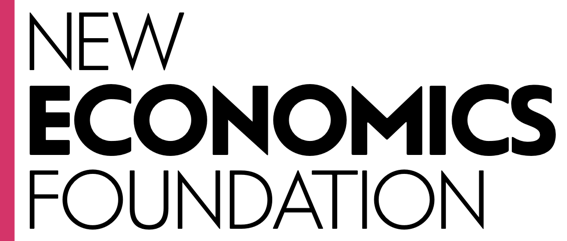
The New Economics Foundation is a U.K- based organization working to transform the economy so it works for people and the planet. Through direct partnerships they incite change from the ground up, then combine those actions with rigorous research to create change at the top. The New Economy Foundation (NEF) aims to create a new economy that, by 2040, works for people and within environmental limits. They do this through policy and research, transforming local economies, campaigns and organizing, and consultancy.
NEF has pioneered ideas and practices including co-production, local money flow analysis, social return on investment, ethical investment and social auditing. Today, their work is centered around three missions: a new social settlement, a Green New Deal, and a democratic economy. Underpinning all three missions is an acknowledgement that the rules and institutions that shape our economy are not forces of nature beyond our control, but have been designed by people.
For those interested in taking part in the redesigning of the economy, NEF has a number of resources on their website, ranging from reports on climate change to a New Economics podcast. One of their publications, The New Economics Zine, is free to download.
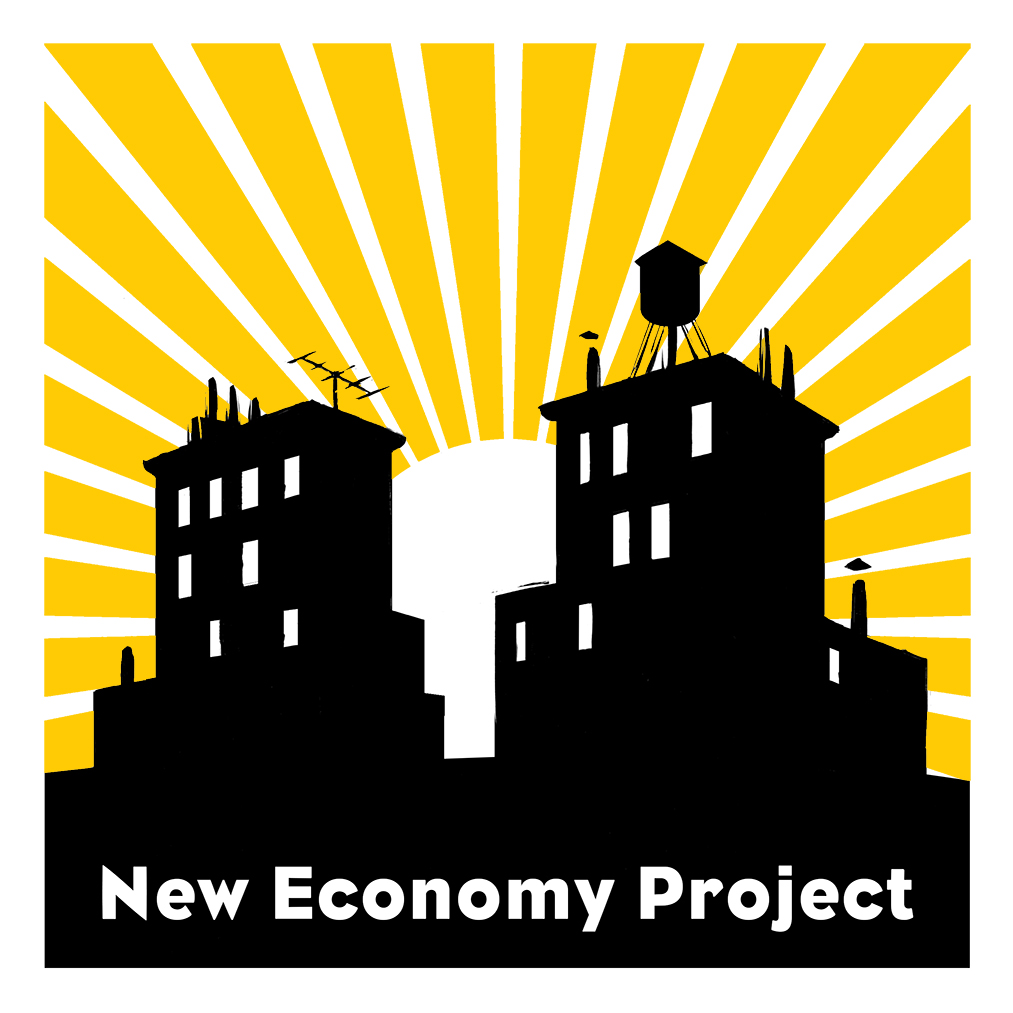
New Economy Project is working to build a new economy for New York City, one that is rooted in racial and social justice, cooperation, neighborhood equity, ecological sustainability, and that works for all. They pursue lasting, transformational change by building strong local economies, by supporting cooperative and community-controlled development, and by challenging corporations that harm communities and perpetuate inequality and poverty.
Cooperation is key to building a new economy, and so all of New Economy Project’s campaigns are done in partnership with other organizations. New Economy Project has played an instrumental role in fashioning a strong local movement for community land trusts. Today, they provide one-on-one support to emerging CLTs, facilitate community and popular education workshops, and advocate for policies to strengthen CLTs and social housing in New York.
On their website, New Economy Project’s Resources page is flooded with informative articles and reports, with topics ranging from public banking and payroll cards to community land trusts and redlining. They also operate the NYC Financial Justice Hotline, which provides free information, legal advice, and referrals to community groups and low-income NYC residents.
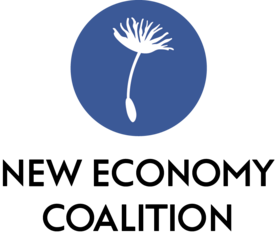
The New Economy Coalition is a membership-based network representing the solidarity economy movement in the United States. It organizes over 200 member organizations into a unified force, working to accelerate the transition of our economic system from capitalism to a solidarity economy. The coalition promotes innovative models for place-based transition, including worker cooperatives, housing cooperatives, community land trusts, public banking, and other forms of municipal public ownership.
NEC’s members are a cross section of nonprofits, mission-driven businesses, grassroots community organizations, and sectoral associations. They join NEC to be part of a network that is cross-sectoral and national in scope as part of an international social movement ecosystem united by the goal of a more just, liberatory, and democratic world.
In addition to general education about solidarity economy principles and components, the coalition’s website also hosts a member network directory, creative campaigning toolkits and calls to action, as well as a monthly New Economy Roundup enewsletter.
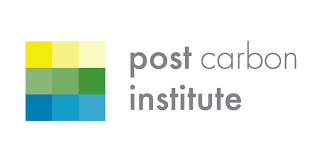
Post Carbon Institute’s mission is to lead the transition to a more resilient, equitable, and sustainable world by providing individuals and communities with the resources needed to understand and respond to the interrelated ecological, economic, energy, and equity crises of the 21st century.
Founded in 2003, the Institute envisions a world of resilient communities and re-localized economies that thrive within ecological bounds. It provides individuals and communities with the resources needed to understand and respond to the interrelated ecological, economic, energy, and equity crises, helps build resilience to withstand these crises, and supports social and cultural change to make society more ready to take decisive and appropriate action. To do so, Post Carbon Institute supports a growing movement of innovators and early adopters who can develop best practices and provide leadership both now and during future crises.
The Post Carbon Institute offers a range of content including publications, speaker events, an introductory “Think Resilience” online course, and more via their website.

The Post Growth Institute is an international organization working to realize a society that thrives within ecological limits. ‘Post-growth’ is a worldview that sees society operating better without the demand of constant economic growth. It proposes that widespread economic justice, social well-being and ecological regeneration are only possible when money inherently circulates through our economy.
Working within this ideological framework, the Post Growth Institute conducts research, publishes articles, gives community presentations, offers workshops, and has created 54 affiliated organizations. The Institute is currently in the process of releasing their new book How on Earth, which documents the rapid rise of not-for-profit forms of business in our economy and the foreseeable end to the profit motive in our lifetimes.
Part of the Post Growth Institute’s efforts to encourage a fair and sustainable economy is sharing the resources of other organizations. Through their website you can access over 350 guides made by the news action network Shareable with the intention of helping individuals save money, reduce waste, and build community through sharing—from food and family, to cities, housing, work, travel, technology and much more.
 Schumacher College is a progressive college in the U.K. for ecological studies, offering postgraduate and undergraduate programs, research degrees, short courses, and a practical agroecology residency. Guided by the ethos of learning by doing, the College focuses on interactive and experiential education. Their goal is to help students develop the practical skills and strategic thinking required to face 21st century challenges.
Schumacher College is a progressive college in the U.K. for ecological studies, offering postgraduate and undergraduate programs, research degrees, short courses, and a practical agroecology residency. Guided by the ethos of learning by doing, the College focuses on interactive and experiential education. Their goal is to help students develop the practical skills and strategic thinking required to face 21st century challenges.
Many of Schumacher College’s courses feature guest teachers who are world-renowned thinkers, activists, and practitioners, such as Vandana Shiva, George Monbiot, and Helena Norberg Hodge. Students attending the College learn in small class-sizes and live and work together in community. Together, students and staff do the cooking, cleaning, and gardening.
Schumacher College hosts a number of on-site and virtual events that are open to all. They are a great opportunity for those wanting to get a feel for the community, and to hear from and speak directly with the College’s lecturers and course leaders.

Upstream is a podcast that offers a quarterly Documentary series and a bi-monthly In Conversation series exploring a wide variety of themes pertaining to economics— from an anti-capitalist perspective. Podcasting since 2016, co-creators Della Duncan and Robert Raymond have concocted a unique blend of storytelling and economic analysis to create a listening experience that is not only digestible but engaging. They invite listeners to unlearn everything they thought they knew about economics and imagine what a better world could look like.
Upstream’s Documentary series features documentaries that cover themes ranging from Green Capitalism to abolishing the police. Their In Conversation series features interviews with activists, change-makers, and visionaries. You can listen to any one of Upstream’s episodes via their website.

Well-Being Economy Alliance (WEAll) is an international collaboration of organizations and individuals working towards a wellbeing economy: delivering human and ecological wellbeing for all. The alliance is building momentum for economic transformation and changing the debate so that economies around the world deliver shared wellbeing for people and the planet.
They do so by: 1) Strengthening, supporting, and connecting existing geographic and thematic power bases at all levels of society, prioritizing countries that together have the power to change the current global economic system. 2) Curating and democratizing knowledge that demonstrate the viability of a Wellbeing Economy approach. 3) Co-creating new, powerful narratives of hope.
In addition to learning resources, Wellbeing Alliance membership is open to groups or individuals. Members coordinate in WEAll hubs: place-based groups that facilitate collaboration and activity towards a wellbeing economy.


